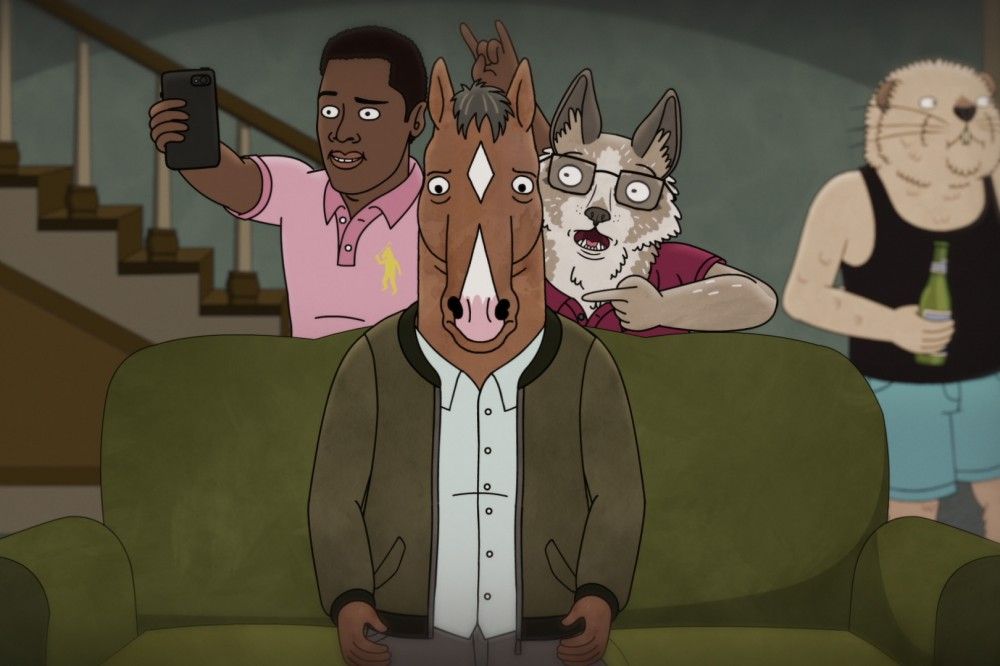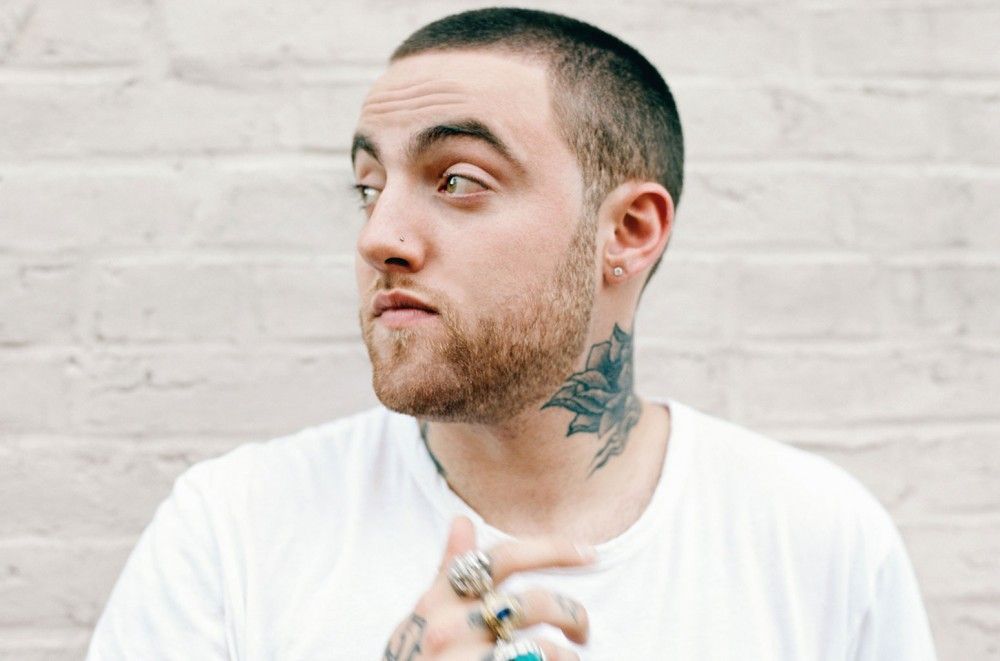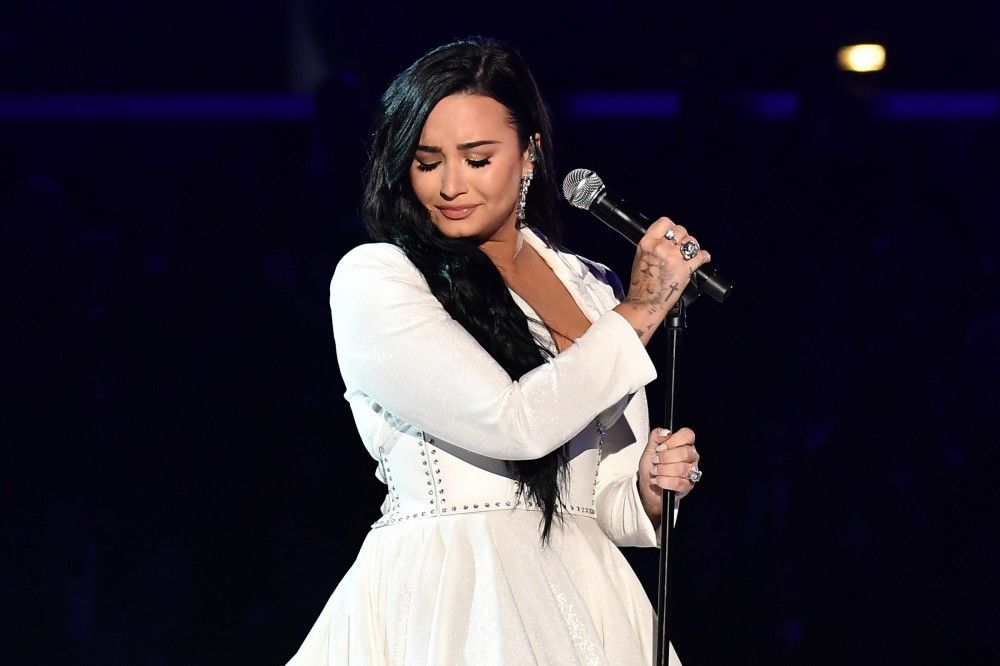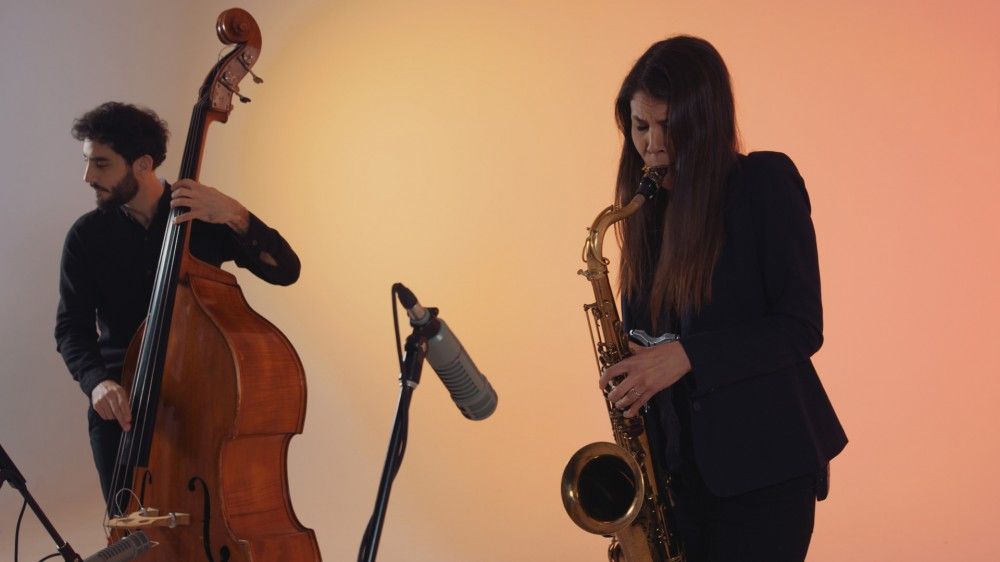
'BoJack Horseman' Series Finale Recap: Alone Again, Naturally
This post has full spoilers for the final season of , which is available now on Netflix.
The lurid opening credit sequence of BoJack Horseman follows the animated title character (Will Arnett) — a washed-up Nineties sitcom star in thrall to addiction, depression, and his own toxic personality — as he floats through his own life, oblivious to the needs and wants of the people who care about him. It climaxes with him falling into his mansion’s swimming pool and appearing to drown, like William Holden in the famous opening scene of Sunset Boulevard. Then, a moment later, we see him lounging by the same pool, shielding his eyes from the harsh L.A. sun but otherwise OK.
In the amazing penultimate episode of BoJack, “The View From Halfway Down,” it seems like part of the opening credits comes true. BoJack finds himself at a party with many of the dead people he hurt most in life, or who hurt him, including his mother Beatrice, his betrayed mentor Herb, and his doomed co-star Sarah Lynn. (There was also the ghost of Zach Braff, who was murdered and eaten by arch-villain Jessica Biel back in Season Four, plus a loose bird with more than a passing resemblance to Bertie, one of the two main characters from BoJack producer Lisa Hanawalt’s brilliant-but-canceled Tuca & Bertie.) BoJack recalls that he has had this dream before, but as Beatrice and the others perform songs about the meaning of existence and other weighty topics, Herb suggests it’s no dream. One by one, the party guests go through a mysterious, stage-left doorway(*), and BoJack realizes that he really is drowning in his swimming pool after his latest bender, and that the one call he made before getting in the water was to best friend Diane (Alison Brie), whom he was too drunk — and too self-involved — to remember lives in Chicago. Believing it’s too late to do anything to save himself, BoJack imagines one last conversation with Diane, and rather than the show’s earworm of a closing theme, the end credits are accompanied by the sound of an EKG monitor flatlining.
(*) Between this show, The Good Place, and, of all things, Arrow, it was quite a week for finales involving the afterlife and/or one-way doors, wasn’t it? And for series about loners who ultimately realize the importance of helping, and being helped by, others.
The end? BoJack fails to conquer his demons — the narcissism as much as the substance abuse — and is destroyed by them, right? Fits thematically with everything that happens, and the remaining episode would allow closure for the many surviving characters who tried and failed to help BoJack get over himself.
Except that’s not what happens. Instead, the finale sees BoJack waking up handcuffed to a hospital bed, alive but about to do time for one of his many misdeeds. A year later, he gets a weekend furlough to attend the wedding of his manager/agent/ex-girlfriend Princess Carolyn (Amy Sedaris), catches up with her and Todd (Aaron Pull), and gets to share a real last conversation with Diane.
Probably.
I’ve heard from people who instead interpreted the last episode as some kind of purgatory, like the sideways universe from Lost or one of The Good Place‘s test neighborhoods. It’s a reasonable take; the finale even opens with the flatline sound continuing, as we see what will later turn out to be the concluding scene between BoJack and Diane. It’s the kind of dramatic ending suitable for a character who was the star of multiple television shows, and who has admitted he based his whole worldview on lessons he learned growing up in front of a TV set.
But it seems a less interesting conclusion than the idea of BoJack having to continue living with his failures and struggling to grow beyond them — of the last part of the opening credits coming true metaphorically. In the series’ most acclaimed installment, the episode-length eulogy that was “Free Churro,” BoJack admitted that TV had taught him the wrong lessons about being good. He needed to accept, he explained, that goodness required consistency and hard work, rather than the periodic grand gestures he had leaned on. BoJack having to go on through the real world (even the series’ cracked-mirror vision of it) and keep working isn’t as inherently bold an ending as BoJack dying for his sins. But it feels more to the point of the story that’s been so beautifully told over these six seasons.
Or, as Diane elegantly puts it in that last scene, “Sometimes, life’s a bitch, and then you keep living.”
That last conversation is remarkable. There’s a sense that — thanks in part to her marriage to Guy and new life in Houston — it really will be the last time these two speak. He makes a self-deprecating joke about that, but she doesn’t dismiss the idea, only moments after referring to him in the past tense by saying she’s glad she knew him. Diane has been hurt by BoJack far less than many other characters have, but it’s also clear that being close to him is unhealthy for anyone except perhaps Princess Carolyn. (She’s strong enough to stay true to herself when she’s around him, and also has the show’s most stable and supportive partner in new husband Judah.) To be pedantic about it, this really is the final BoJack/Diane conversation, because the show is ending, and no more will be written or performed. But the characters don’t know that, and there’s something profoundly sad to the tone of the scene, even as they veer between deep statements about their lives and sillier topics, like BoJack’s story of how he swapped the Pieces of April DVD in for The Family Stone on prison movie night.
It also stands out in the same way that “Free Churro” did: for doing something you don’t expect from animation. In this case, it’s the way the scene, and series, ends on a long, unbroken take (or the cartoon equivalent) of these two old friends sitting side by side, lost in thought about all they’ve been through together, and where their respective futures lie. They’ve stopped talking (“Mr. Blue” by Catherine Feeny soundtracks the moment), so all we have are their expressions, presented as best they can be in the blocky animated style Hanawalt and the team came up with years ago. If it was actually Arnett and Brie on screen, or Ethan Hawke and Julie Delpy, or Matt Damon and Hong Chau, it wouldn’t seem that unusual, because the show would be relying on their natural expressiveness to get the emotions across. The animators here can only do so much within this style, and for the rest, we have to think on what we know of these two and their rich and difficult history with one another. It works, because the world of BoJack and its characters have come to feel real after all this time, despite the absurdity of it all.
In forcing BoJack to publicly confront his actions with Sarah-Lynn, and with so many of the other women he hurt, this final season took the story to its logical endpoint. The series had long been a parody of male antihero drama clichés, while also walking an emotional tightrope that allowed it to be a serious exploration of the same issues, so there was no shortage of bad behavior to inspire comeuppance. Yet the way that most of the real world’s MeToo villains have avoided long-term consequences wound up dovetailing nicely with a show about a horse/man who had so often skated away because of his fundamental charm and penchant for striking the right apologetic note when needed. BoJack does suffer here. He scares away half-sister Hollyhock, and it seems his friendships with Diane and Todd are, if not over, at least a shadow of the bonds he once had with each of them. And he did spend a year in prison (though he admits to Todd that it helped his sobriety). But the series has long suggested that no difficult man is ever truly canceled (see the return of Bobby Cannavale’s heinous Vance Waggoner earlier in the season), and Princess Carolyn suggests BoJack’s Horny Unicorn project may offer him a chance at a comeback. The chickens came home to roost, but maybe only for a little while.
So Season Six did an effective job of providing emotional closure for BoJack, Diane, Todd, Princess Carolyn, and Paul F. Tompkins’ Mr. Peanutbutter, and to some of the show’s longest-running gags, like the criminal career of Character Actress Margo Martindale, or BoJack’s Season One theft of the “D” in the Hollywood sign. (In the case of the latter, Mr. Peanutbutter tries to replace the D and get people to stop calling the place “Hollywoo,” but thanks to a mix-up ends up with a giant “B” instead. Hollywoob, here we come!) But for much of the home stretch, the series’ miraculous balance of comedy and drama felt tilted heavily towards the latter. The tragic parts of BoJack are its best parts, but the show is historically special because of how comfortably they co-exist with the more ridiculous parts.
Perhaps because Bob-Waksberg didn’t initially plan to end the show in six seasons, and thus might have been forced to squeeze more plot than normal even into a slightly longer season, both the episodes released in the fall and this final batch didn’t have nearly as much room for goofiness. There was the usual wordplay (“I had my doubts when he did a scene from Proof, but when he did a scene from Doubt, I said, ‘There’s the proof.’”) and off-kilter celebrity parody (with Paget Brewster note-perfect as a Katharine Hepburn-esque screwball comedy heroine journalist), but healing took precedence. During one late episode where several characters visited BoJack during his surprisingly successful stint as a college drama professor, it felt like a relief when Todd wandered off for a few minutes for a silly adventure involving marshmallows and a man named Willy Wesleyan, who offered to gift the entire university to him. (And even there, a sadder truth is revealed: “Willy” is an escaped mental patient.)
Still, the last few episodes hit all the right, bittersweet notes, and make the entire journey feel richer for how smartly the show chose its ultimate destination. Midway through the finale, Todd asks, “Isn’t the point of art less what people put into it and more what people get out of it?” BoJack wonders, as usual, whether his former housemate is “being smart or stupid.” “I never know!” Todd admits. But as usual, he’s onto something. The people who made BoJack Horseman obviously put a lot of inspiration, artistry, and intelligence into this great, great show. Now that it’s done, I look forward to taking even more out of it when I get to watch it again, hoping BoJack can figure out his problems sooner, even as I know that life, and this series, don’t work that way.



